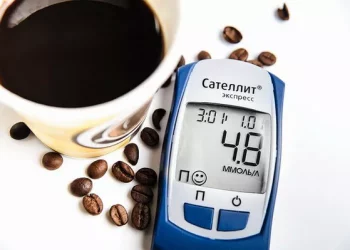Blood sugar (glucose) plays a critical role in the overall health of individuals, particularly for those with diabetes. It is essential to monitor blood sugar levels regularly to maintain optimal health and prevent complications. While medications and insulin can help regulate blood sugar, various factors can cause blood sugar levels to spike unexpectedly. Understanding these factors and how they affect blood sugar can help individuals better manage their diabetes.
In this article, we will explore the key factors that can raise blood sugar levels, from dietary choices to lifestyle habits and health conditions. By identifying these triggers, individuals can take preventive measures to keep their blood sugar levels within a healthy range.
1. Poor Dietary Choices
One of the most significant contributors to elevated blood sugar levels is diet. The types of foods consumed, the timing of meals, and the size of portions can all have a direct impact on blood sugar regulation. Certain foods are more likely to cause blood sugar spikes, especially those high in refined sugars, unhealthy fats, and carbohydrates.
Refined Sugars and Simple Carbohydrates
Foods that are high in refined sugars, such as candies, cakes, cookies, and sugary drinks, are known to cause rapid spikes in blood sugar. These foods are often digested quickly, leading to a sudden rise in glucose levels. Simple carbohydrates, like white bread, pasta, and pastries, are also quickly broken down into glucose, further contributing to elevated blood sugar.
For individuals with diabetes, consuming these foods in moderation or avoiding them altogether is crucial. Instead, it is recommended to focus on whole grains, fruits, and vegetables, which provide a more steady release of energy and help stabilize blood sugar.
High Glycemic Index Foods
The glycemic index (GI) measures how quickly a food raises blood sugar levels. High-GI foods, such as white rice, potatoes, and processed cereals, are more likely to cause blood sugar spikes compared to low-GI foods like whole grains, legumes, and non-starchy vegetables. Choosing foods with a low to moderate glycemic index helps maintain better blood sugar control over time.
Large Portion Sizes
Even healthy foods can lead to blood sugar increases if consumed in large portions. Overeating, especially carbohydrates, can overwhelm the body’s ability to process glucose, leading to higher blood sugar levels. Portion control is essential, and it is beneficial to focus on balanced meals that include protein, fiber, and healthy fats to slow the absorption of carbohydrates.
2. Physical Inactivity
Lack of physical activity is another factor that can raise blood sugar levels. Exercise helps the body use insulin more efficiently, allowing for better glucose uptake by cells. Without regular physical activity, the body’s insulin sensitivity can decrease, making it harder to regulate blood sugar levels.
Impact of Sedentary Lifestyle
A sedentary lifestyle, characterized by long periods of inactivity, can contribute to insulin resistance. When the body becomes less sensitive to insulin, glucose is not absorbed as effectively, causing blood sugar to rise. Studies have shown that even moderate physical activity, such as walking or cycling, can significantly improve insulin sensitivity and help lower blood sugar levels.
Exercise and Stress Hormones
While exercise is beneficial for blood sugar control, intense or prolonged physical activity can sometimes cause a temporary increase in blood sugar. This is due to the release of stress hormones like cortisol and adrenaline during strenuous exercise, which can stimulate the liver to release stored glucose into the bloodstream. However, this effect is typically short-term, and regular moderate exercise is still one of the most effective ways to manage blood sugar in the long run.
3. Stress and Emotional Factors
Emotional stress, anxiety, and depression can all raise blood sugar levels, primarily due to the release of stress hormones. When the body is under stress, it produces cortisol and other hormones that prepare the body for a “fight or flight” response. These hormones can increase glucose production in the liver, which can lead to a rise in blood sugar levels.
Chronic Stress and Insulin Resistance
Chronic stress can lead to long-term increases in cortisol, which may promote insulin resistance. Insulin resistance occurs when the body’s cells do not respond to insulin effectively, leading to higher blood sugar levels. Managing stress through relaxation techniques, meditation, deep breathing, and other coping mechanisms is vital for maintaining balanced blood sugar levels.
Emotional Eating
Stress can also contribute to emotional eating, where individuals turn to food for comfort. This often involves high-calorie, sugary, or fatty foods that can spike blood sugar levels. Emotional eating can become a cycle, with elevated blood sugar leading to increased stress and vice versa. Developing healthier coping strategies, such as engaging in physical activity or hobbies, can help break this cycle.
4. Illness and Infection
When the body is fighting an illness or infection, blood sugar levels can increase. This is due to the body’s stress response, which involves releasing more glucose to provide energy for immune function. The release of stress hormones during illness can also make it more difficult for insulin to work effectively.
Fever and Infections
Fever and infections, such as the flu, cold, or urinary tract infections, can cause blood sugar levels to rise. It is essential for individuals with diabetes to monitor their blood sugar closely during illness and adjust their treatment plan as needed. This may include increasing insulin doses or taking medications to help regulate blood sugar.
Sick-Day Management
During illness, it is important to stay hydrated, eat small, balanced meals, and continue taking medications as prescribed. However, some individuals may experience a loss of appetite, which can make it challenging to manage blood sugar levels. In such cases, it may be necessary to consult with a healthcare provider to adjust treatment or seek advice on sick-day management.
5. Medications and Medical Conditions
Certain medications and medical conditions can raise blood sugar levels, even in individuals without diabetes. Understanding the medications being taken and any underlying health conditions is crucial in managing blood sugar levels effectively.
Medications That Increase Blood Sugar
Some medications can cause blood sugar levels to rise as a side effect. These include corticosteroids, certain antidepressants, antipsychotics, and some blood pressure medications. If you are taking any of these medications, it is important to discuss blood sugar management strategies with your healthcare provider. They may adjust your treatment plan or suggest additional monitoring to prevent spikes in blood sugar.
Conditions That Affect Blood Sugar
Certain medical conditions, such as polycystic ovary syndrome (PCOS), Cushing’s syndrome, and thyroid disorders, can contribute to higher blood sugar levels. For example, PCOS is often associated with insulin resistance, which can lead to elevated blood sugar. Managing these underlying conditions is essential for maintaining stable blood sugar levels.
6. Hormonal Changes
Hormonal fluctuations can significantly affect blood sugar levels. This is particularly evident in women, as hormonal changes during menstruation, pregnancy, and menopause can impact insulin sensitivity and glucose metabolism.
Menstrual Cycle
During the menstrual cycle, some women may experience fluctuations in blood sugar due to hormonal changes. In the premenstrual phase, levels of estrogen and progesterone fluctuate, which can affect insulin sensitivity. Women with diabetes may need to monitor their blood sugar more closely during this time and adjust their treatment as necessary.
Pregnancy and Gestational Diabetes
Pregnancy can also affect blood sugar levels. Gestational diabetes is a condition that develops during pregnancy and causes high blood sugar. While gestational diabetes typically resolves after childbirth, it increases the risk of developing type 2 diabetes later in life. Women with gestational diabetes must monitor their blood sugar carefully during pregnancy and follow their healthcare provider’s advice.
7. Lack of Sleep
Getting enough sleep is essential for overall health, and poor sleep can contribute to elevated blood sugar levels. Lack of sleep can interfere with the body’s ability to process glucose effectively, leading to insulin resistance and higher blood sugar levels.
Sleep and Insulin Sensitivity
Studies have shown that sleep deprivation can negatively impact insulin sensitivity, making it harder for the body to regulate blood sugar. Chronic sleep deprivation is associated with an increased risk of developing type 2 diabetes. Ensuring adequate rest each night is crucial for maintaining healthy blood sugar levels.
8. Alcohol Consumption
Moderate alcohol consumption can have a mixed effect on blood sugar levels. While alcohol itself does not directly raise blood sugar, it can interfere with the liver’s ability to produce glucose. This can cause blood sugar levels to drop initially. However, alcohol can also lead to increased appetite and poor food choices, which can contribute to higher blood sugar levels later on.
Binge Drinking and Blood Sugar Spikes
Heavy drinking or binge drinking can lead to significant fluctuations in blood sugar levels. Alcohol can impair the body’s ability to regulate glucose effectively, leading to both hypoglycemia (low blood sugar) and hyperglycemia (high blood sugar). For individuals with diabetes, it is important to drink alcohol in moderation and monitor blood sugar levels closely.
Conclusion
Understanding what can raise blood sugar levels is a crucial aspect of managing diabetes and maintaining overall health. By being mindful of dietary choices, staying active, managing stress, and monitoring health conditions, individuals can better control their blood sugar and reduce the risk of complications. It is essential to work closely with healthcare providers to develop a personalized plan that addresses these various factors and ensures optimal blood sugar management.
As diabetes is a dynamic condition, regular monitoring, consistent treatment adherence, and a balanced lifestyle are key to living well with the condition.
Related topics:



























